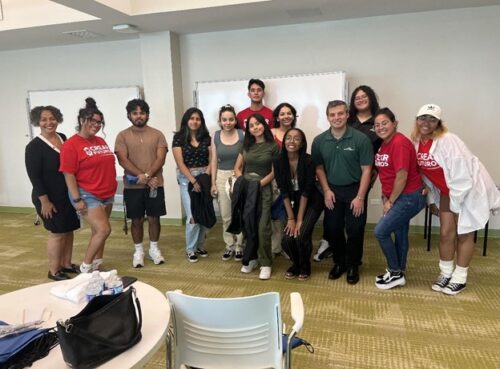Laura Chipley grew up in Vienna, Virginia, with a strong determination to pursue her passion of creating. She soon realized that achieving success would not be easy. She would have to work hard and sacrifice to reach her goals.
After completing her education at Bard College with a Bachelor of Arts in Film and Electronic Media and Hunter College with an MFA in Integrated Media Arts, she went through a tough phase in her life which she describes as “pretty tumultuous.”
“I got a good job right after graduation working for an internet streaming TV production company, but in 2000, the ‘dot com industry’ collapsed and I found myself unemployed,” she said. She became a freelance camera operator and editor, working for TV pilots and reality shows. She said that she also worked in commercial studio photography. “I spent a lot of time chasing down employers for unpaid invoices, taking photos of overpriced couches, and having producers tell me to edit more cleavage shots into whatever soul-crushing garbage we were producing,” she explained.
Chipley felt “demoralized, and like [she] was giving up on [her] creative ambitions.” Instead of giving up, she decided that change was necessary.
She picked up everything and moved to Kunming, China, where she taught English and Cinema Studies at Yunnan University. The experience was challenging, but also life-changing. She said, “I returned to NYC with a renewed determination to pursue my artwork.”
Laura Chipley is now an assistant professor in the American Studies department at SUNY Old Westbury and a co-director of the Media Innovation Center, where Chipley can continue creating while “working with students to hone their creative vision and their voice,”
Chipley offers students valuable advice about tapping into their creativity. She tells everyone to “read books, talk to strangers, look at art, spend time in nature, learn how to make or build or draw something, seek out new experiences, and don’t be afraid of discomfort or boredom. And most importantly, for all of us, put down your damn phone.”
When Chipley put down her own phone, she discovered a new interest in collaborating in participatory projects with communities about urban ecology and the impacts of environmental disasters. She described some of these interactive projects as being “complicated.” “Gaining proficiency in new technology to create work, gaining access to spaces that are often challenging to document, and most importantly, gaining the trust of the community I’m hoping to work with can be a long and complicated process.”
She remains determined to learn, grow, and work. Chipley is currently working on Virtual Aquapolis, an immersive virtual reality project “about the New York Harbor in which the user/audience will experience 500 years of environmental history from underneath the surface of the water,” she said. “The project is in a very early stage and I’m making it in collaboration with Professor Samara Smith.”







